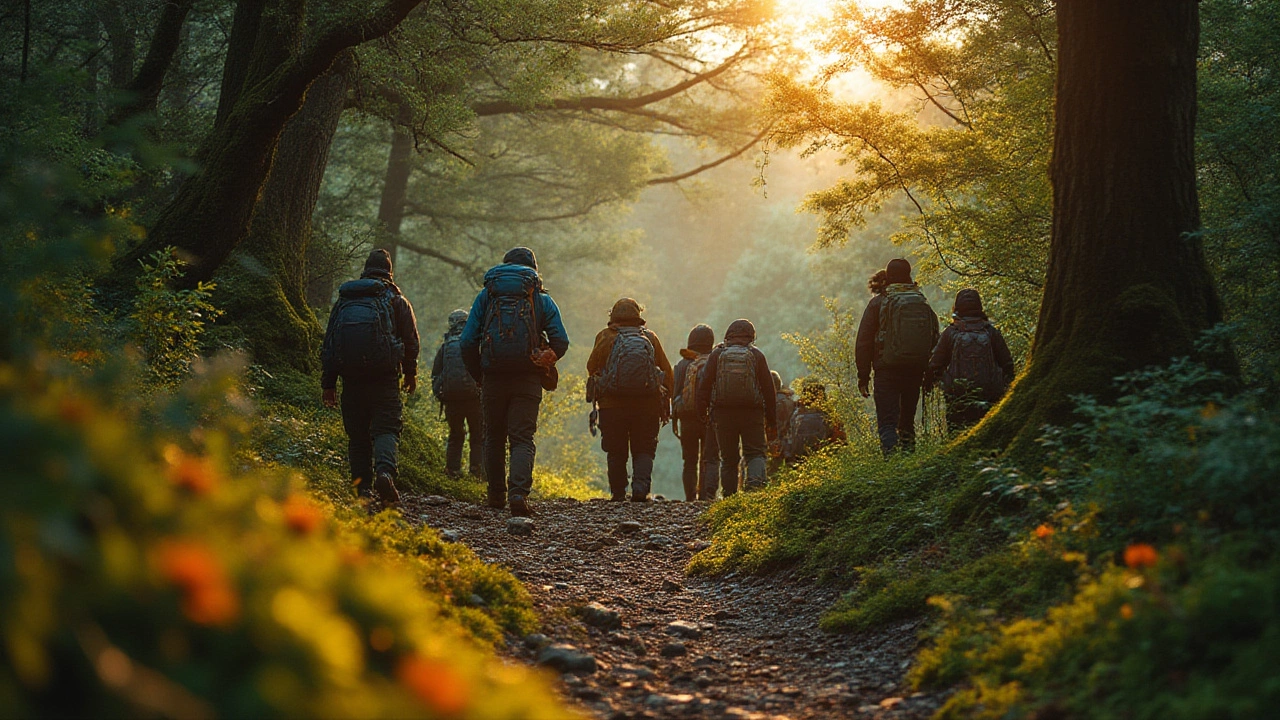
Rip Camping: The Unfiltered Guide to Wild Camping in the UK
Rip camping is raw outdoor camping away from official sites—think wild nights under the stars but with unique challenges and etiquette. Here’s what to know.
Read MoreGot a spot at a popular campsite and want to make sure you don’t crank up the drama? Good news – campsite etiquette is easier than you think. Follow a few common‑sense habits and you’ll enjoy a hassle‑free stay while keeping the neighbours smiling.
Most sites ask campers to keep noise down after 10 pm. That doesn’t mean you have to whisper, but turn the music volume low, keep conversations indoor, and avoid late‑night fire pits that splash sparks. If you’re planning a party, check the site’s policy first – some places allow a short gathering, others ban it outright. A quick “Hey, is this okay?” can save you a fine or an unwelcome eviction.
Pack out every piece of litter, even the tiny wrappers you think no one will notice. Use the provided bins for recycling and garbage, and follow any rules about food waste. If the site has a compost area, toss veggie scraps there; otherwise, seal them in a bag before you leave. Also, clean up after pets – carry a bag, scoop the poop, and dump it in a bin.
Speaking of pets, keep dogs on a leash unless the site has a designated off‑lead area. This protects wildlife and stops surprise bites. If you have a cat, keep it inside the vehicle or a carrier when you’re away from the pitch.
Bathrooms, showers, and laundry rooms are communal, so treat them like you would at a gym. Flush after each use, rinse out the shower, and don’t leave personal items cluttering the benches. If a washing machine is free‑standing, don’t overload it – follow the capacity limits printed on the door.
When you finish with a site’s grill or fire pit, extinguish the flames completely and remove any leftover charcoal or wood. A quick pour‑of‑water and a stir will do the trick. Leaving a singe‑free area shows you care about the next camper’s safety.
Don’t spread your gear across neighbour’s pitch. Keep tents, chairs, and tables within the boundaries of your allocated site. If you need extra space for a bike or kayak, ask the site manager where you can store it safely. Parking should be straight and within the marked lines – angled cars block traffic flow and can cause accidents.
When you arrive, park close enough to unload without dragging heavy stuff over the road. This saves time for you and prevents damage to the grass or gravel.
Leaving food out attracts deer, foxes, and unwanted insects. Store everything in sealed containers and keep the fridge door closed. It’s also rude to camp too close to the fire pit if you’re not using it – the heat can scorch neighbours’ tents. Finally, remember to turn off lights and appliances before you head back to your vehicle; you’ll save battery and keep the campsite dark for night‑time campers.
By sticking to these straightforward guidelines, you’ll earn the respect of fellow campers and the site staff. Good etiquette isn’t about rules for the sake of rules – it’s about making the whole experience smoother for everyone. So next time you roll into a Nottingham campsite, pack your sense of respect along with your gear, and enjoy the freedom of the road without stepping on anyone’s toes.

Rip camping is raw outdoor camping away from official sites—think wild nights under the stars but with unique challenges and etiquette. Here’s what to know.
Read More